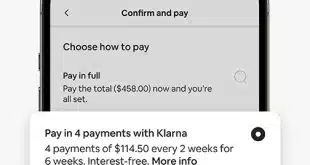A wireless connectivity standard known as Bluetooth Low Energy appears to be getting a high-energy reception in payments and commerce. Apple Inc. is among the first to put the technology to use in its stores. On-the-spot rewards company Shopkick is testing it in two Macy’s stores, one in New York and the other in San Francisco. And PayPal, Inc., the payments unit of eBay Inc., expects to launch its scheme early next year.
Bluetooth Low Energy promises connectivity with very low power draws on devices using the technology. It was introduced in Bluetooth 4.0. Apple iPhones 4S and newer using iOS 7 are Bluetooth LE compatible. Smart phones using Google Inc.’s Android 4.3 operating system and newer also support the technology.
Apple this week debuted its iBeacon scheme for sending offers and product information directly to consumers’ iPhones while they shop inside an Apple store. Dubbed iBeacon, the system uses a network of Bluetooth devices placed strategically within the store. They can detect when compatible iPhones using iOS 7, and that have Bluetooth turned on, are nearby and display notifications about products without the consumer opening an app or activating the iPhone’s screen. The consumer can tap the notification to open the Apple Store app to learn more and, ultimately, scan and pay for an item.
Consumers also can use Apple’s EasyPay feature, which allows iPhone users to walk into an Apple store, take an item off the rack, scan its bar code, enter an Apple ID and three-digit card-verification value to make payment, and walk out.
Shopkick’s scheme, dubbed shopBeacon, works similarly, but does not include a payment feature.
PayPal Beacon also presents offers without having to open an app. Upon entering a PayPal Beacon-enabled store, the PayPal app emits a tone or a vibration to check in the consumer. Upon check in, the consumer’s photo associated with his PayPal account appears on the merchant’s point-of-sale system. “This allows merchants to connect with their customers as soon as they enter the store as well as confirm the consumer is planning to pay with PayPal,” a PayPal spokeswoman says.
When ready to checkout, the consumer goes to a register and informs the salesperson he wants to pay with PayPal. The merchant confirms the image on the POS system matches the purchaser and proceeds to select the PayPal payment option.
Currently, PayPal Beacon works with POS systems made by Erply, Leaf, Leapset, Micros Systems Inc., NCR Corp., Revel Systems Inc., ShopKeep.com Inc., and Vend Ltd.
The ability of these schemes to deliver marketing messages while the consumer is in close proximity to products is significant, says Ben Bajarin, director of the consumer-technology practice at San Jose, Calif.-based Creative Strategies Inc.
“The vision has always been when out in the public space and based on your proximity to other devices, certain things happen,” Bajarin says. “Close proximity is the key.”
Bluetooth can connect devices at distances up to 164 feet, but that can be shortened, such as for retail use or in car radios. That is a major difference with other geo-location services that rely on Wi-Fi or cellular towers, Bajarin says. “Wi-Fi and cellular only goes so far.”
Once Bluetooth LE is involved, the opportunities to pair devices multiply, Bajarin says. He estimates that between 160 million and 180 million iPhones alone are compatible with the technology, and potentially could participate in a beacon-based scheme. It’s that installed base on devices that makes Apple interesting, he says, and distinguishes it from similar schemes, like PayPal.
Indeed, PayPal will have to sell merchants on its beacon system, and urge them to use a compatible POS system. But PayPal is different from Apple in that it is marketing the system to multiple merchants. Apple, however, only has installed the system in its 254 stores. Apple did not respond to a Digital Transactions News inquiry.
Some of the excitement about these applications of Bluetooth LE in retail is stems from the idea that they could help merchants counter showrooming and improve their engagement with shoppers, Bajarin says. Showrooming is what happens when consumers check out products using their smart phones in physical stores before buying them at a lower price from online merchants.
With these systems, the retailer knows that consumer is shopping for certain types of products and may be able to offer an electronic incentive to make a sale, he says. As for the engagement aspect, Bluetooth LE schemes eliminate the necessity of opening an app while walking by a store or inside one. “The consumer doesn’t need to be looking at her phone to necessarily to get a deal,” Bajarin says.





